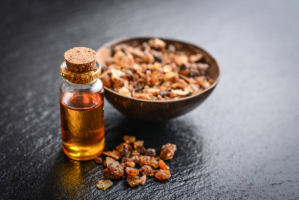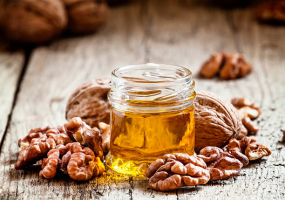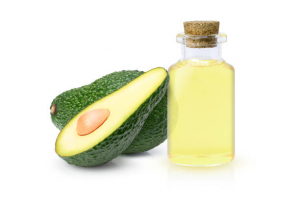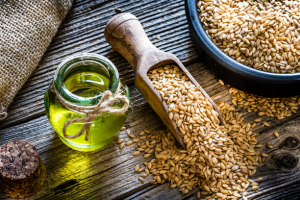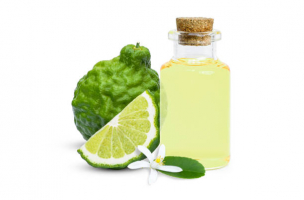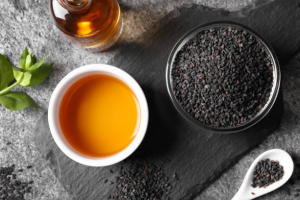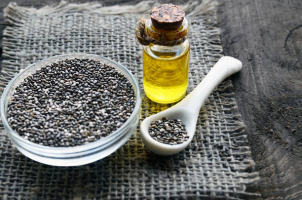Top 10 Health Benefits of MCT Oil
MCT oil is a supplement that has gained popularity among bodybuilders and sportsmen. Its use has been influenced by the popularity of coconut oil, which is ... read more...high in MCTs. The oil known as medium-chain triglyceride (MCT) contains triglycerides, which are medium-length chains of fat. MCTs are easier to digest than longer-chain fatty acids found in many other foods because of their shorter length. Here are the best advantages of consuming MCT oil that has been supported by science.
-
Despite the conflicting results of recent studies, there are some possible explanations for why MCT oil might be helpful for weight loss. Leptin and peptide YY, which can help the body feel full, are two hormones that have been proven to be released more readily when MCT oil is consumed. According to one study, participants who consumed 2 tablespoons of MCT oil with their breakfast consumed less food at lunch than those who consumed coconut oil. The same study discovered that MCT oil had a reduced rise in triglycerides and glucose, which may also affect how full you feel. Older research also suggested that using MCT oil could aid in lowering body weight and waist circumference. According to research, it might aid in preventing obesity.
Be aware that some of these studies fail to account for other elements like activity levels and calorie intake from other sources. Long-chain triglycerides (LCTs), which are present in foods like olive oil, almonds, and avocados, have around 10% more calories than MCT oil. When the intake of carbohydrates is low, the breakdown of fat results in the production of ketones, which MCTs can also be turned into. Taking MCT oil may help you maintain the ketosis state, which is a state of high fat, very low carbohydrate eating that is characteristic of the ketogenic diet. Last but not least, the environment in your gut has a significant impact on your weight. MCT oil may help optimize the growth of good bacteria and support the gut lining, which could also help you lose weight.
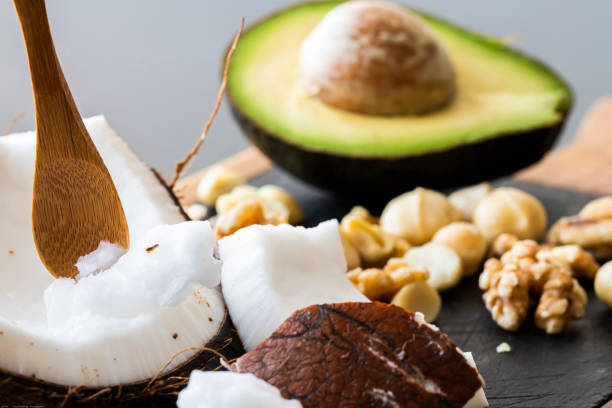
could potentially promote weight loss 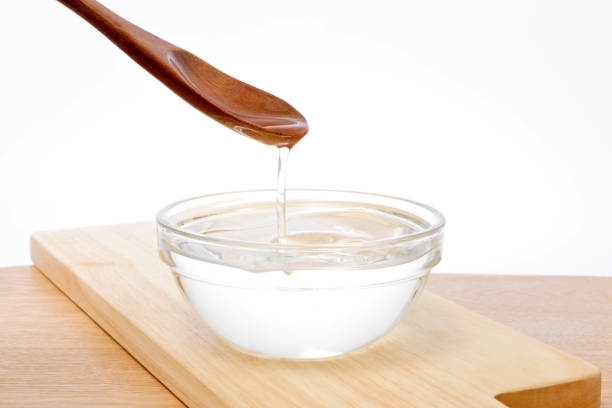
could potentially promote weight loss -
Long-chain triglycerides (LCTs), which have more carbons in their fatty acid chains, are absorbed by the body more slowly than MCTs. MCTs, move from the gut to the liver more quickly than longer-chain fats because of their shorter chains, which also means they don't need bile to break down. The liver breaks down lipids so they can either be used as fuel or stored as body fat. MCTs are a quick source of energy since they can enter your cells without being metabolized.
MCTs can also be turned by the liver into ketones while you're following a ketogenic diet. These ketones can cross the blood-brain barrier, supplying your brain cells with energy. MCT oil is easily absorbed and transported throughout the body. It can be used as an instant source of energy or can be converted into ketones.

could be a good energy source 
could be a good energy source -
Rising lactate levels during exercise might have a negative effect on performance. Interestingly, MCTs may aid in lowering lactate accumulation. According to an earlier study, athletes who consumed 6 grams, or roughly 1.5 teaspoons, of MCTs with food before cycling saw lower lactate levels and easier activity than those who consumed LCTs. The study also discovered that ingesting MCT oil prior to exercise may encourage the body to burn more fat for energy as opposed to carbohydrates.
The evidence for MCT oil's potential to improve exercise performance is conflicting, despite the fact that MCTs may help enhance fat burning during exercise. In a mouse study, it was found to increase swimming ability, but in a human trial, endurance performance in runners did not improve. Another animal study's findings imply that MCT oil may not have a negative impact on exercise performance.

Could reduce lactate buildup in athletes and help use fat for energy 
Could reduce lactate buildup in athletes and help use fat for energy -
The ketogenic diet was initially developed as a way to treat epilepsy, but it has since grown in favor among those looking to reduce weight. According to research, fasting boosts ketone synthesis, which may lower the frequency of epileptic seizures. MTCs can be metabolized into ketones, which makes them potentially useful for treating epilepsy. The MCT's type, though, can matter. According to an in-vitro investigation, MCT capric acid enhanced seizure control more than a popular anti-epileptic medication.
More human trials are required, however, a different study in rats demonstrated that the same MCT suppressed seizure-inducing receptors in the brain. It's also critical to keep in mind that a long-term ketogenic diet can be difficult to follow and is not suitable for everyone. Consult your doctor or a nutritionist before beginning a ketogenic diet to help control your epilepsy.

Could help manage epilepsy 
Could help manage epilepsy -
The usage of sugar by your brain is hampered by Alzheimer's disease. An MCT ketogenic diet provides ketones as an alternate energy source. This might improve brain cell survival. Additionally, it inhibits a brain receptor that contributes to memory loss. A single dose of MCTs was found to improve short-term memory in 20 persons with Alzheimer's disease who had a particular gene variant, particularly APOE 4-negative.
The symptoms of mild to severe Alzheimer's disease may be slightly improved by 20 to 70 grams of additional MCTs that contain caprylic or capric acid, even though genetic factors play a part. MCT oil has some positive effects on Alzheimer's disease overall, but more extensive research is required.

Could help manage Alzheimer’s disease 
Could help manage Alzheimer’s disease -
Children with autism may also be impacted by MCT oil. In one study, people who followed a ketogenic diet for six months saw good overall changes. For 6 of the 15 children who participated in the study, adding MCTs to a ketogenic and gluten-free diet significantly reduced their autism behaviors.
Autism is an illness that affects people differently because it is a spectrum disorder. This indicates that including MCT oil in your child's diet may be of variable benefit or may have no impact at all. Further study is also required in this area. Consult your doctor or a nutritionist before beginning a ketogenic diet to help control your child's autism.

Could help manage Autism 
Could help manage Autism -
It has been demonstrated that MCTs have antibacterial and antifungal properties. An older in-vitro study found that coconut oil, which is rich in MCTs, can slow the growth of Candida albicans by 25%. This widespread yeast can result in thrush and a number of different skin illnesses. Additionally, an in-vitro investigation revealed that coconut oil inhibited the growth of the pathogen Clostridium difficile. The caprylic, capric, and lauric acid found in MCTs may be the reason why coconut oil can inhibit the growth of bacteria and yeast.
It has also been demonstrated that MCTs themselves can reduce by up to 50% the growth of a contagious fungus that is common in hospitals. However, take notice that in-vitro or animal studies have been used for the majority of the research on MCTs and immunological support. Before firmer findings may be drawn, high-quality human investigations are required.

Contain fatty acids that fight yeast and bacterial growth 
Contain fatty acids that fight yeast and bacterial growth -
It has been demonstrated that MCT oil supports fat and weight loss. Your chance of developing heart disease could be lowered as a result. In a study involving 24 obese males, it was discovered that ingesting flaxseed oil, phytosterols, and MCT oil for 29 days lowered total cholesterol by 12.5%. Olive oil, on the other hand, only resulted in a 4.7% reduction. The MCT oil mixture was observed to improve LDL (bad) cholesterol reductions when added to the subjects' diets, according to the same study. Additionally, MCT oil may contribute to an increase in heart-protective HDL (good) cholesterol.
Even C-reactive protein (CRP), an inflammatory marker that raises the risk for heart disease, can be greatly decreased by it. Other earlier studies discovered that MCT-oil-based mixes can also have a beneficial impact on other heart disease risk factors.

May reduce risk factors for heart disease 
May reduce risk factors for heart disease -
Diabetes sufferers may benefit from MCT oil as well (39Trusted Source). MCTs have been proven to improve fat burning and decrease fat accumulation, which can help with disease management. When compared to those who took maize oil containing LCTs, a small, earlier trial of 40 persons with diabetes indicated that those who regularly drank MCT oil experienced decreases in body weight, waist circumference, and insulin resistance.
A different study discovered that when 10 diabetics received insulin injections, they required 30% less sugar to maintain normal blood sugar levels when consuming MCTs as opposed to LCTs. The same study, nevertheless, found no evidence of MCTs' ability to lower fasting blood sugar levels. As a result, additional variables like time and calorie intake may affect how MCT oil works.

Could help manage blood sugar levels 
Could help manage blood sugar levels -
Healthy fats, such as MCT oil, can promote gut flora, which aids in the efficient absorption and digestion of vitamins and minerals by your body. While studies on digestion and MCT oil have only been conducted on animals, the majority of these studies show promising results when conducted on humans.
According to one study, MCT oil improved digestion, built up the stomach, and helped with nutritional absorption. MCT oil is simple to digest and absorb, which is why it has so many wonderful benefits for the digestive system. Because MCT oils do not require the gut to work extra hard to absorb them, they are advantageous for simple digestion. For people with gastrointestinal issues, this may be helpful.
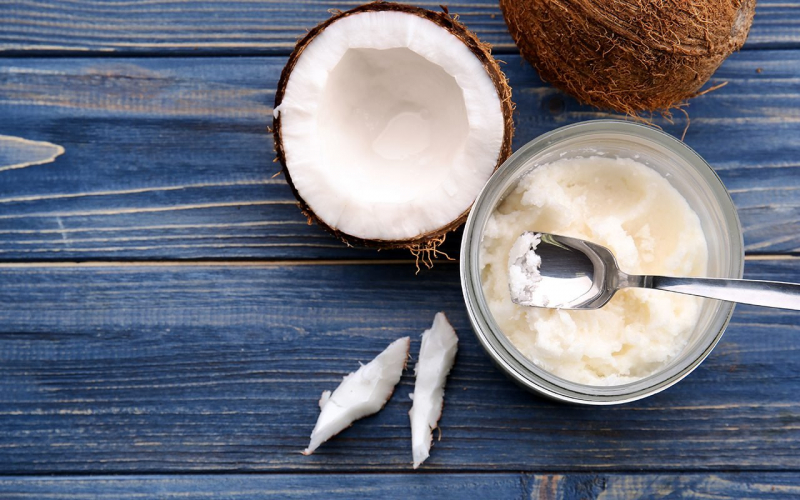
Helps with digestive issues 
Helps with digestive issues














